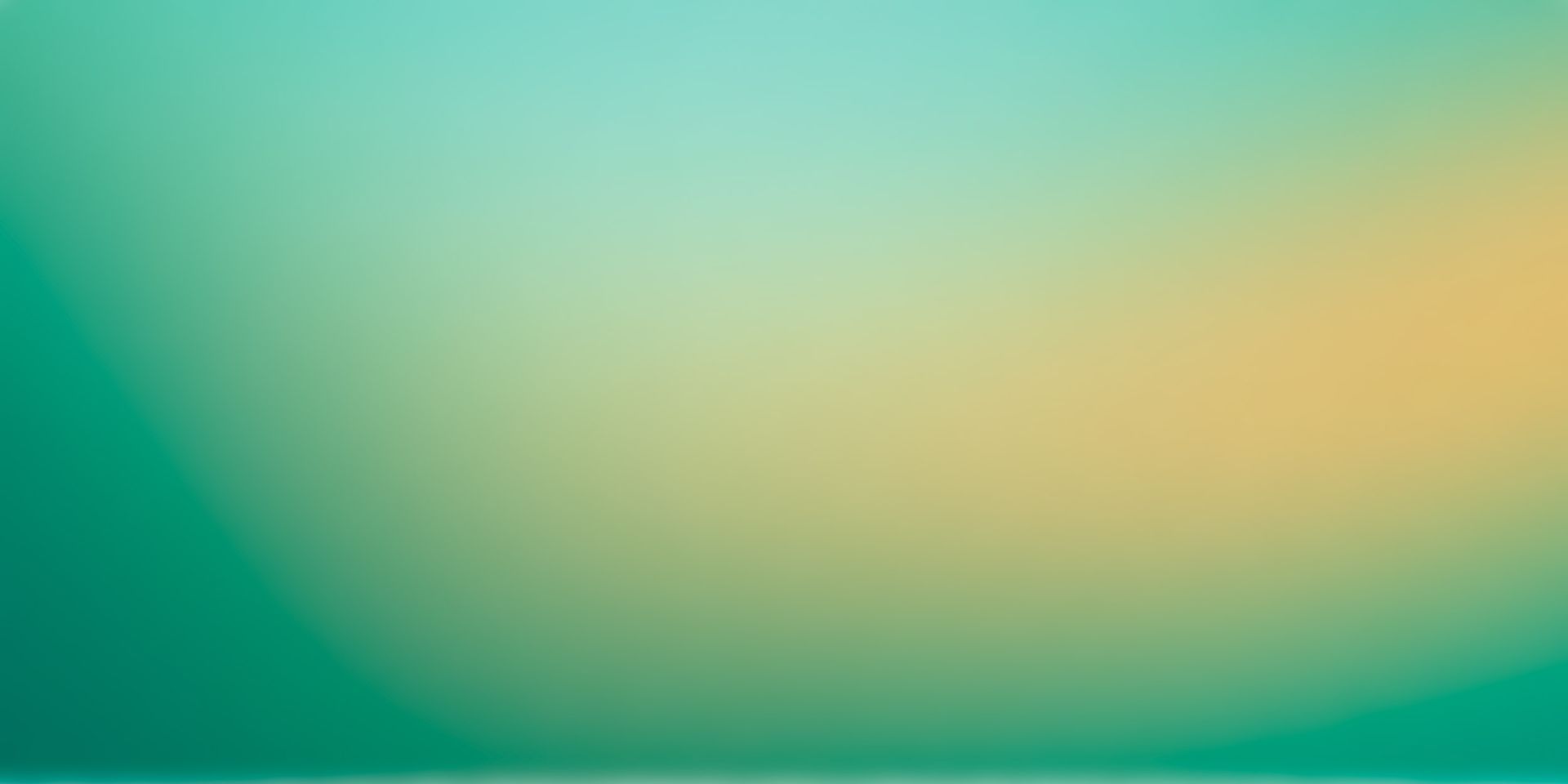
Home → Organise your Media → Collections
Collections
The Collection paragraph type offers advanced functionality to design an image gallery for your website. You can configure display options and apply various layout types to style your image collection.
1. Create and edit collections
To add a collection to your site, you need to create an image gallery first. You can either select images already uploaded to your picturemaxx Drupal or upload new ones from your desktop. You can edit existing collections at any time. Add new images, remove or edit existing ones. Always remember to save your progress.
Important: Changes made to a collection will apply to every page where you published it.
-
To organize your images into a collection:
- In Main Administrative Menu, navigate to Content → Media → Create a Collection.
- Name your collection and select images and/or videos. You can link each media asset of your collection with an URL. Instead of entering the actual URL, you can type in the content title (i.e., another web page).
- You must assign alternative image names. These names are not displayed when the images are used on the website. Meaningful names are key to findability (see SEO).
NOTE: Remember to always save your progress.
-
To change or add new images/videos to your collection:
- Navigate to Content → Media.
- Find the collection in the Media table: set Filter Type to Collections or search by Media name.
- Click Edit on the right in the collection row. The Edit Collection page is displayed.
- Add new images/videos, remove or rearrange existing ones.
Video: Easy steps to create a collection
Video: Edit an existing collection
2. Add a collection to a page
After you have created a collection, add it to an existing page.
Important: You can add collections only to pages of the Basic Page content type.
-
- In the Main Administrative Menu, navigate to Content.
- In the Content Overview table, find a page to add the collection to, and click Edit. The Edit template form is displayed.
- Go to the bottom of the Edit template form and select Add Collection from the Add Section dropdown.
- In the Headline area, assign a name or description, and click Add media. The Add or select media dialog is displayed. Use search options to find a collection if you already have a list of them.
- Select a collection and click Insert selected to add it to the page.
Video: Add a collection to an existing page
3. Display options
Choose from these display options and output styles to showcase your image collections.
-
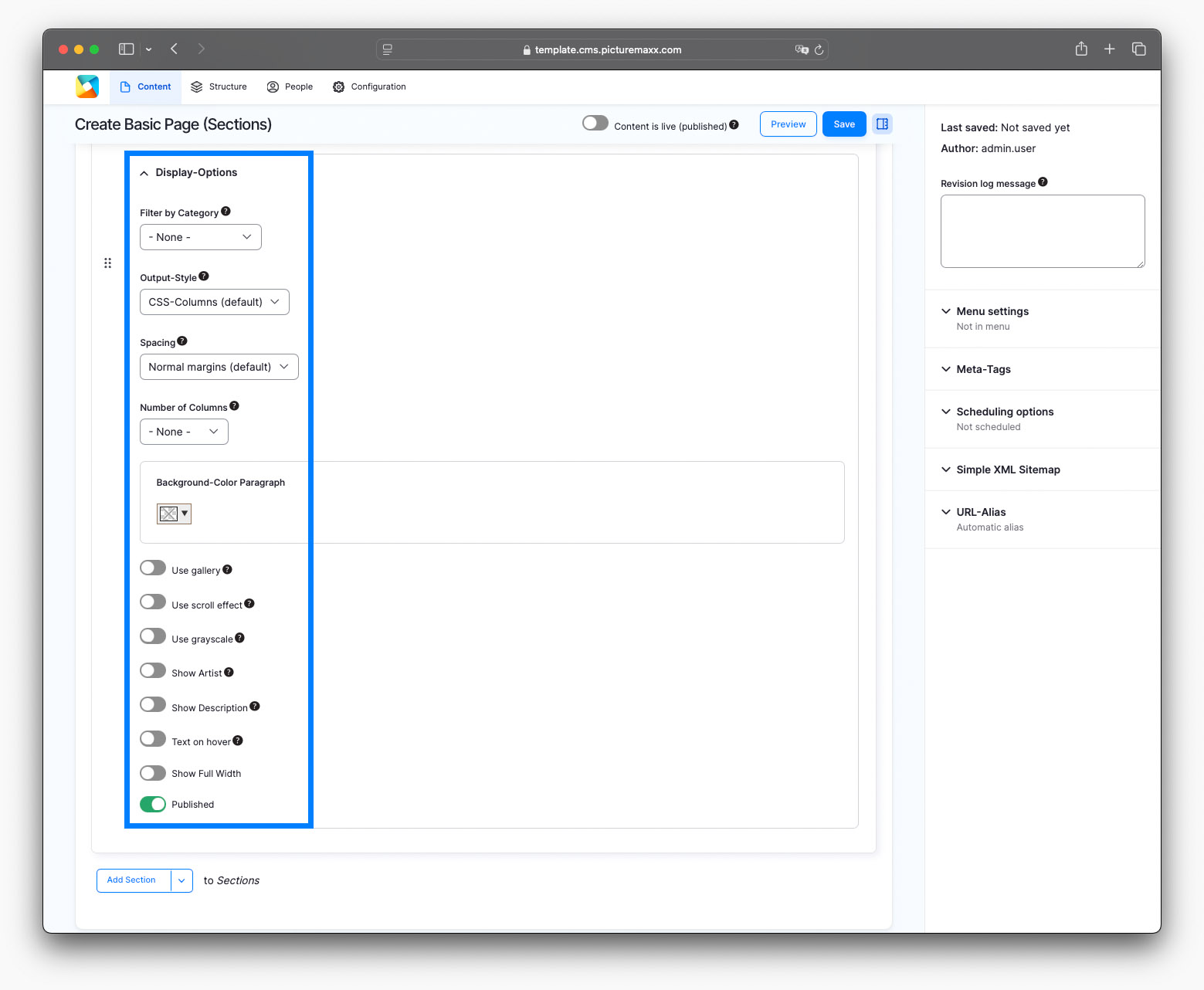
-
Filter by Category
Define a filter category to display only the images tagged with this category. Expose the filter and let users filter the collections on the page.Important: The option does not work with Scroll Effect activated.
Output Style
See 3.1. Output styles below for examples.- CSS Columns
- CSS Grid
- CSS Row
- Masonry Layout
- Justified Layout
Spacing
Use wide margins with care. They work well with three or less columns.Number of Columns
Select a number of columns (examples below).Background Colour Paragraph
Set the overall paragraph's background color.Use gallery
Activate the option to show your images in an overlay full-screen lightbox. Open the gallery by clicking an image.Use scroll effect
Enable a simple scroll effect for the collection images. Use wide margins and fewer columns for best results.
Important: The scroll effect does not work well with Justified Layout.Use grayscale
Display images as grayscale using CSS. Hover an image to deactivate the effect.Show artist
When activated, a link to artists portfolio will be shown on the image/video.Show description
When activated, the image description is displayed as a caption.Text on hover
Enable the option to display text when hovering the cursor over an image.Show Full Width
Allow a full width gallery display.Published
Make the gallery visible to visitors. If deactivated, only you can see the gallery.
3.1. Output styles
-
Photo aspect ratio is used. The items go from top to bottom, not left to right.
Preview setup:
Spacing: normal margins
Number of columns: 4
Background: none
✔️ Use gallery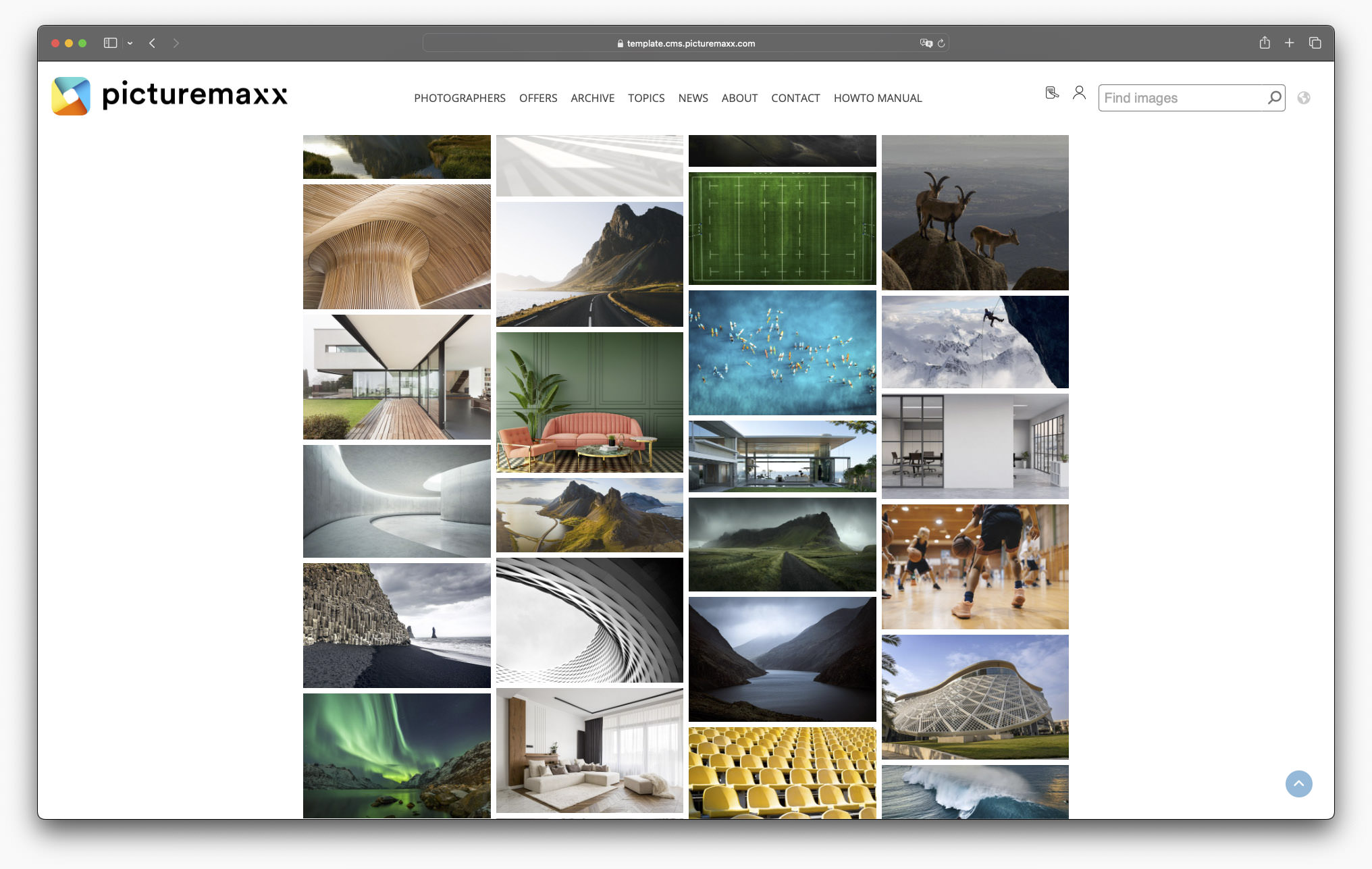
-
This output style offers a tiled look. Individual formats that step out of the line are placed prominently. The order is mostly horizontal, although the layout breaks with it in between.
Preview setup:
Spacing: small margins
Number of columns: 3
Background: none
✔️ Use gallery
✔️ Show full width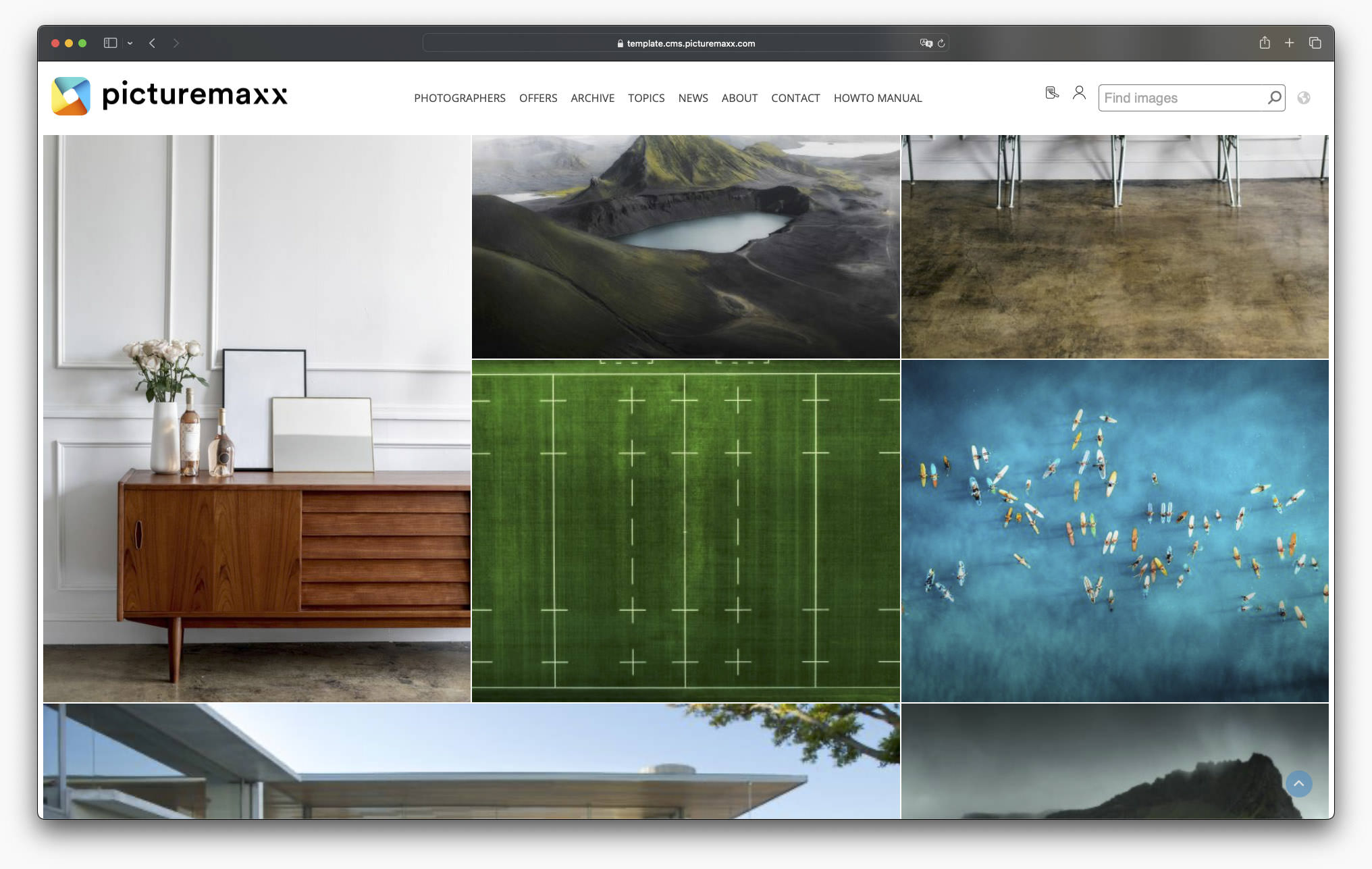
-
Photo aspect ratio is used. The items always go left to right. Gaps are not filled, so whitespace is used if there are different aspect ratios on a row.
Preview setup:
Spacing: wide margins
Number of columns: 4
Background: none
✔️ Use scroll effect
✔️ Show full width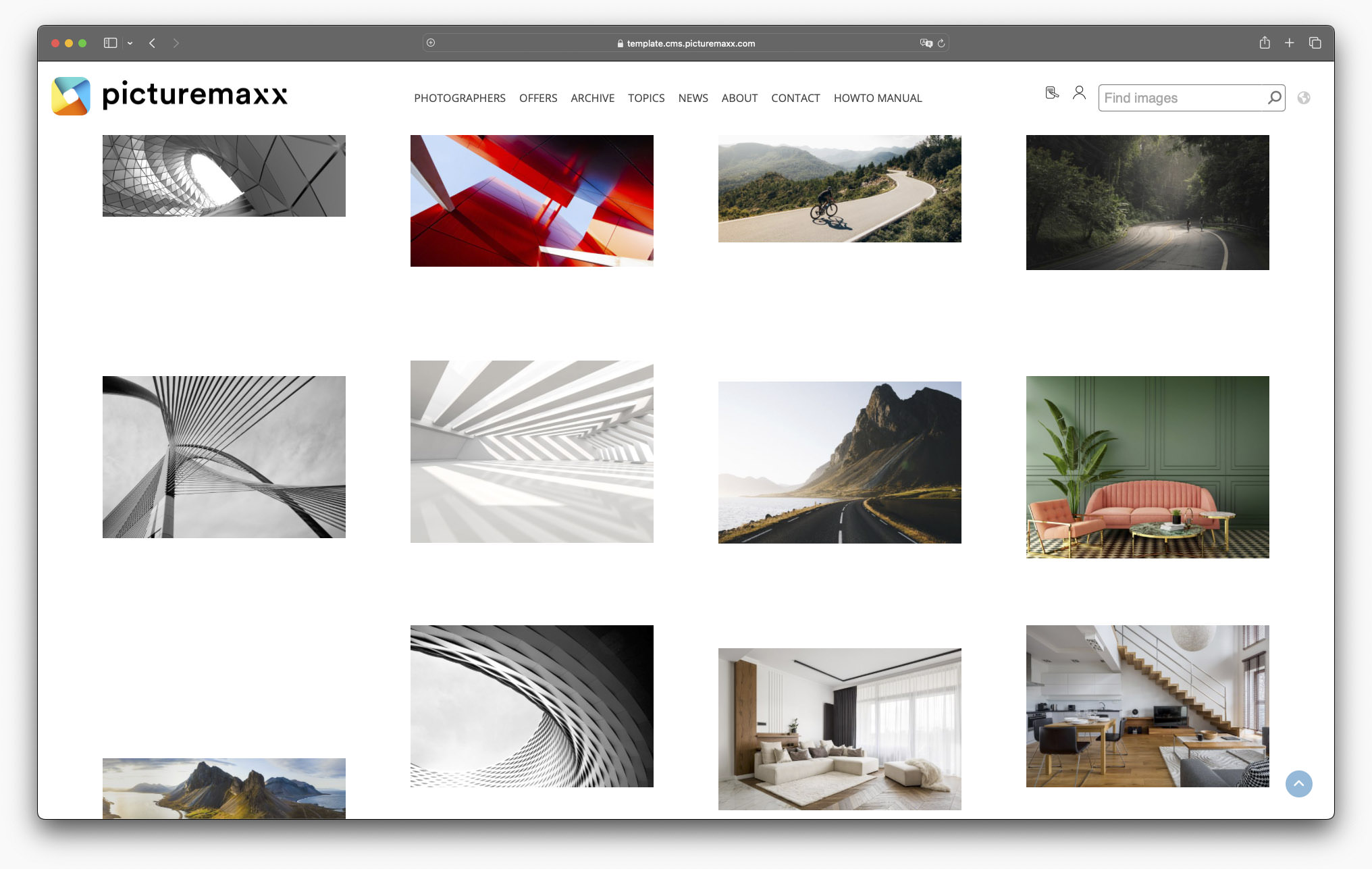
-
Photo aspect ratio is used. Images do not stick to a strict grid with gaps after smaller items, they move up and fill the gaps.
Preview setup:
Filter: Exposed Filter
Spacing: small margins
Number of columns: 4
Background: none
✔️ Use gallery
✔️ Show full width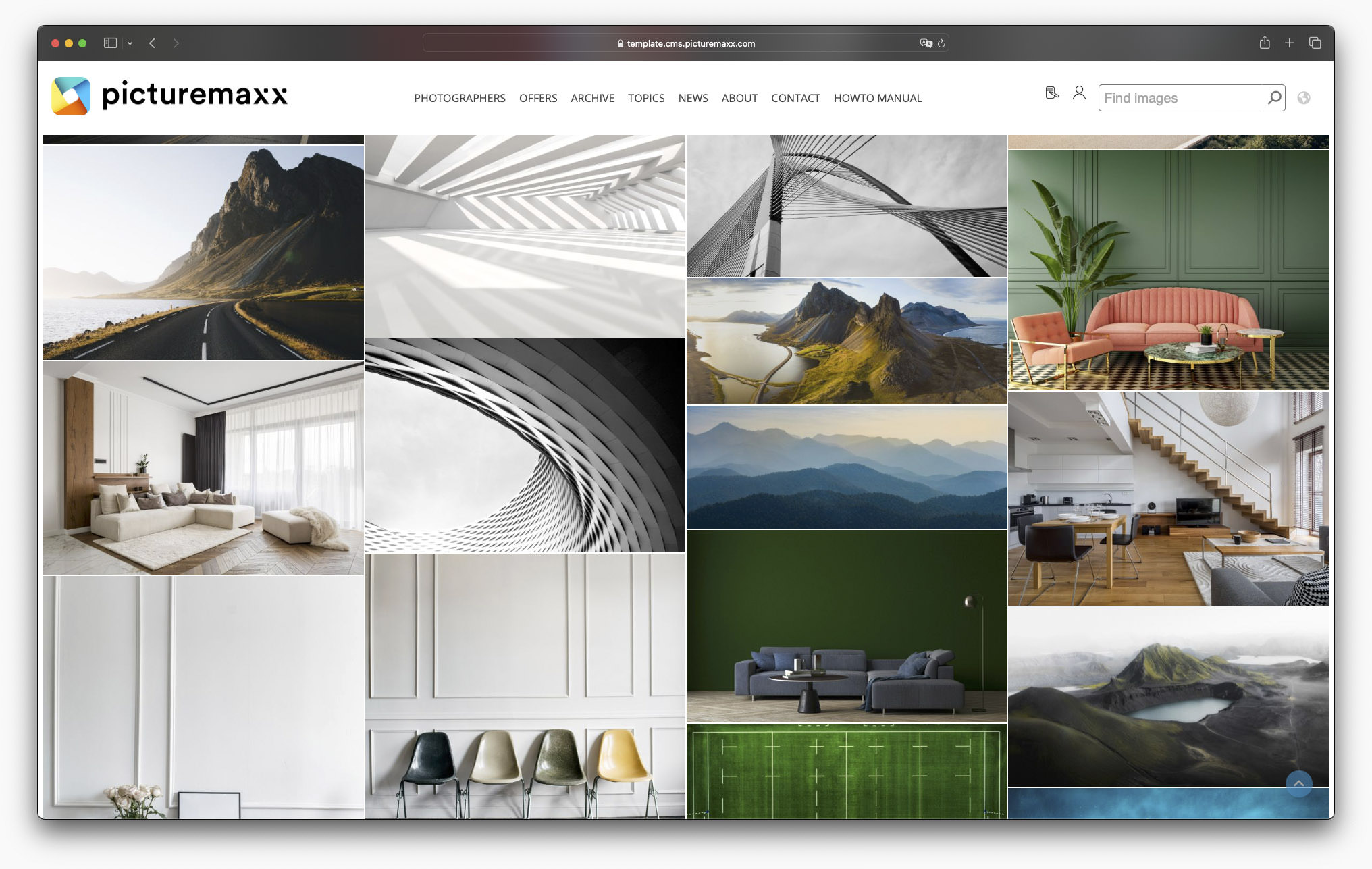
-
Photo aspect ratio is used. Images are arranged in an elegant way, a brick wall-like layout.
Preview setup:
Filter: Exposed Filter
Spacing: no space between images
Number of columns: 5
Background: none
✔️ Use gallery
✔️ Use gray scale
✔️ Show full width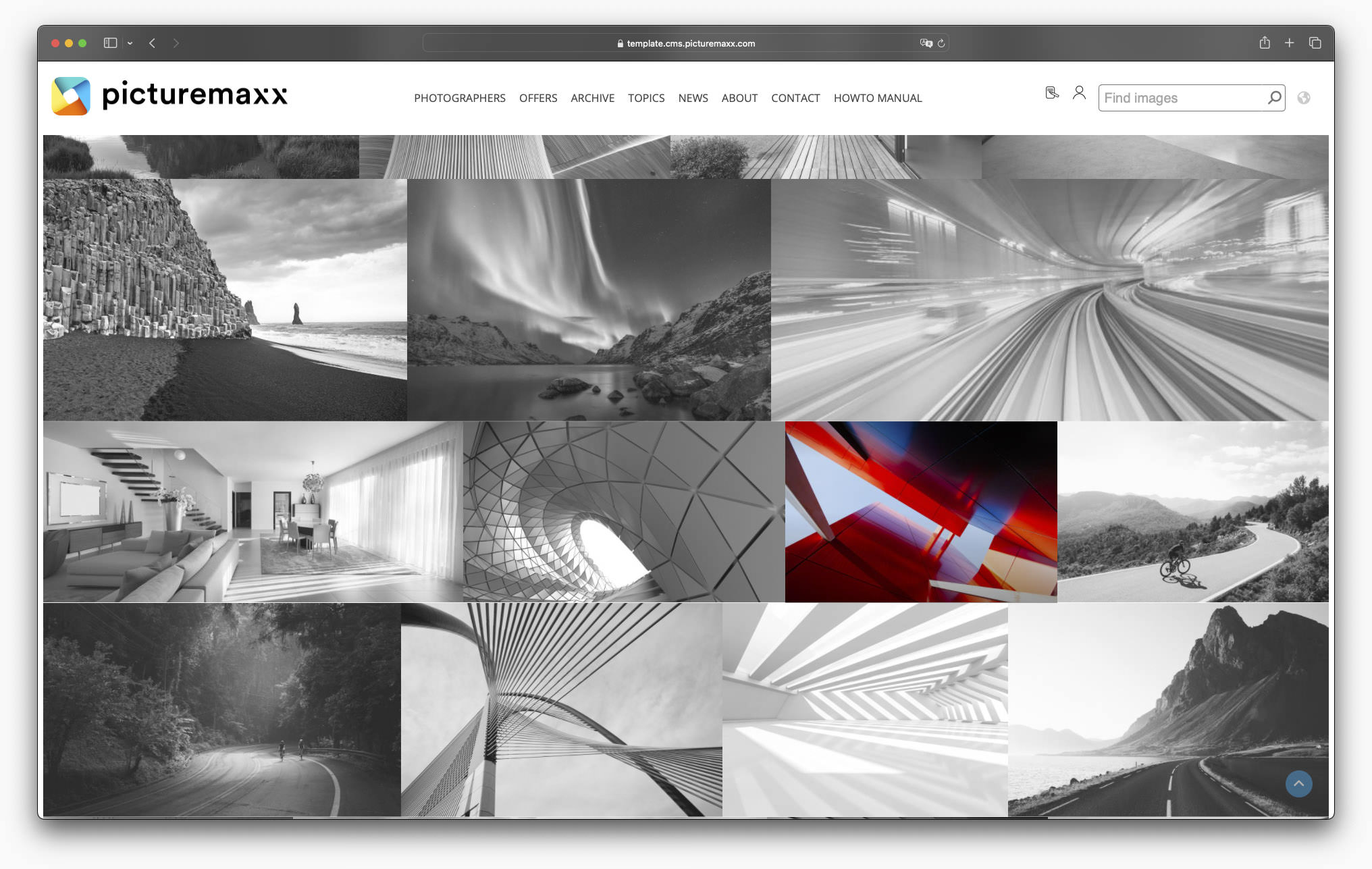
4. Add filter categories
You can activate the filter function for a collection and display specified categories above the gallery. If there are more than five filter categories, they are displayed as a dropdown menu. Give it a try on our demo page.
Important: The feature does not work with Scroll Effect activated.
Related content: To learn more about categories and how to assign images to specific categories, refer to Smart Linking.
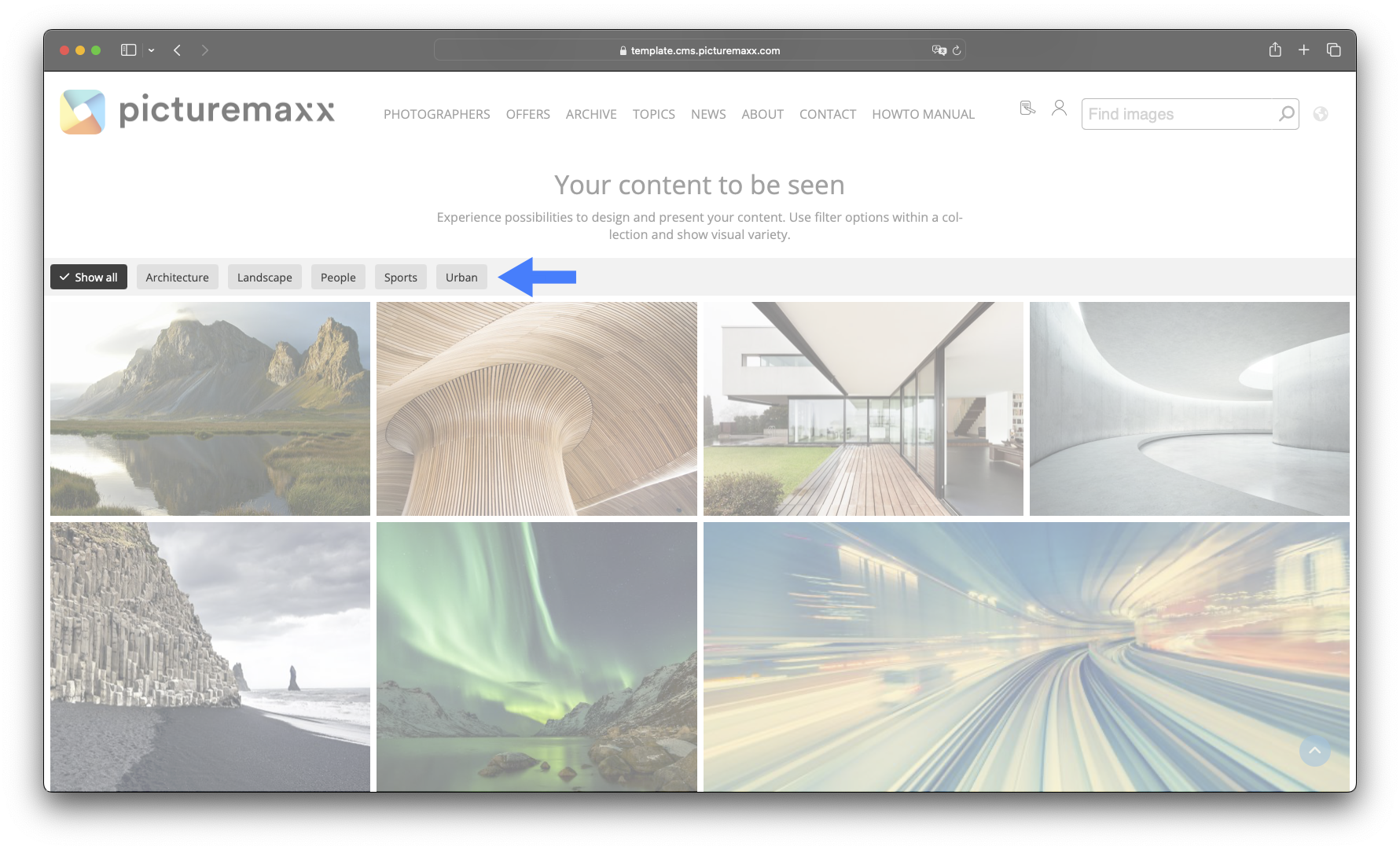
Before publishing the page:
- Click Preview to make sure everything looks the way you want. You can preview any change before publishing it.
- To return to the Edit page, click Back to content editing.
- To make new content visible on your website, turn on the Content is live (published) option.
- Click Save to store your changes. The website content items are listed on the Content page.